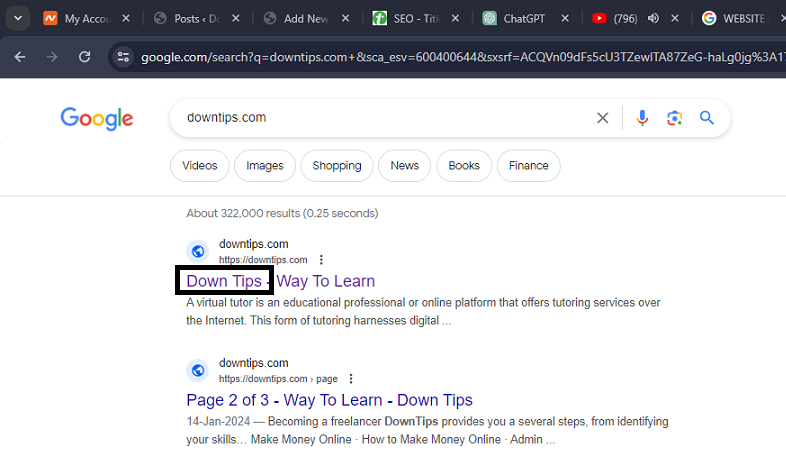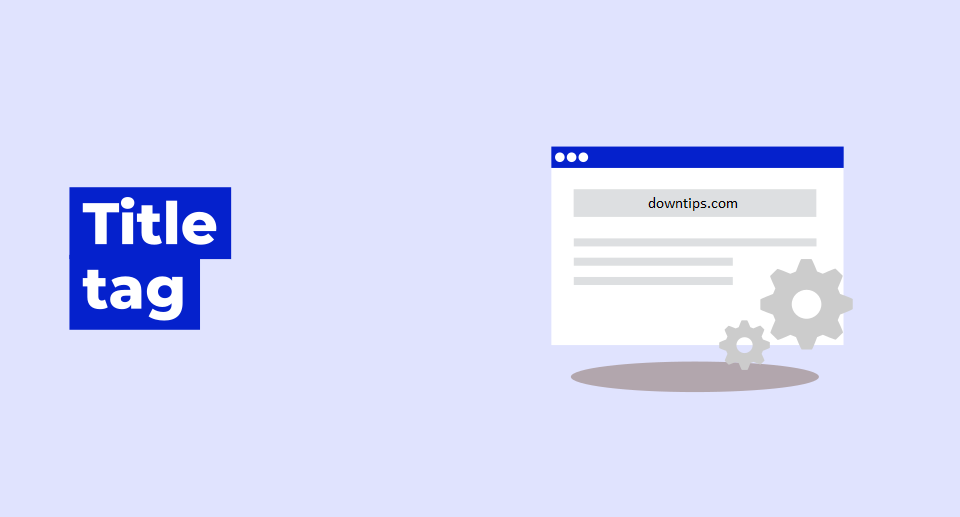Set SEO Title tags are a critical element of on-page. They are HTML elements that define the title of a web page and appear as the main headline in search engine results. Crafting effective title tags is important for both search engine optimization and user engagement. A precise and comprehensive summary of the material on a website should be included in the title tag of a website’s home page.

An illustration of HTML code for Title Tags
<head><title>Example Title</title></head>
Set SEO Title Tags Here are some best practices for optimizing title tags:
- Relevance and Keyword Placement:
- Include relevant keywords in your title tag. Place the most important keywords near the beginning of the tag, but ensure it reads naturally to users. Don’t keyword stuff; focus on providing a clear and compelling title.
- Length:
- Keep your title tags within the recommended length. While there is no fixed character limit, it’s generally advisable to keep titles around 50-60 characters. Google typically displays the first 50-60 characters of a title tag in search results.
- Clarity and Readability:
- Craft titles that are clear, compelling, and easily understandable. Users should quickly grasp the content of the page by reading the title. Avoid using jargon or overly complex language.
- Brand Mention:
- Include your brand name in the title tag, especially if your brand is well-known or relevant to the content. This helps with brand recognition and can influence click-through rates.
- Unique Titles for Each Page:
- Ensure that each page on your website has a unique title tag. This helps search engines understand the distinct content on each page and avoids confusion in search results.
- Avoid Duplicate Titles:
- Minimize duplicate titles across your site. Each page should have a unique title to prevent potential issues with search engine indexing.
- Use Pipes or Hyphens to Separate Elements:
- Use separators like pipes (|) or hyphens (-) to separate different elements within your title tag. For example: “Keyword Phrase | Brand Name” or “Page Title – Site Name.”
- Target Local SEO:
- If your business has a local presence, consider including location-specific keywords in your title tags. This is particularly important for local businesses aiming to attract local customers.
- Avoid All Caps:
- Avoid using all capital letters in your title tags. Capitalized text can be harder to read and may be perceived as less professional.
- Emotional Appeal:
- Craft titles that evoke emotion or curiosity when appropriate. A title that sparks interest can lead to higher click-through rates.
- Regularly Review and Update:
- Periodically review and update your title tags, especially if there are changes to the content or focus of a page. Keeping titles fresh and relevant is important for both users and search engines.
- Consider Mobile Users:
- Given the increasing number of users on mobile devices, ensure that your titles are concise and display well on smaller screens.
Three SEO Best Practices for Title Tag Creation
The title of your website not only affects your position but also gives consumers the initial view of your web page when it shows in search engine results.
Here are some guidelines for composing title tags that you should abide by −
Keep it simple and concise
Google may trim or modify your lengthy title even though it won’t penalize you for it. Additionally, the title may only make sense in this version. Limiting title length to no more than 60 characters is advised because of this.
Titles should be original but appropriate
Innovative titles may persuade readers to click while also assisting search engines in determining the subject matter of a web page.
One primary keyword
The title tag of a particular page should ideally contain just one target term or primary keyword. You harm the search engine rankings of a website by squeezing several keywords into its title. Users may need clarification and be less interested in clicking to proceed to your website.
Typical Errors in Title Tag Composing
Google can bring up a title utterly different from what you meant in certain circumstances due to a poorly constructed title tag. The performance of Google’s variant cannot be guaranteed. Google’s edits may influence your website’s click-through rate (CTR), even though they won’t always impact rankings.
While composing title tags, a few of the most frequent errors people make are as follows.
The element <title> is not written
You lack a title if the HTML source code doesn’t have a title tag specification. Google will generate a title for the website according to the content of its pages and display it in search engine results.
Text that needs to be more used
The purpose of title tags is to describe the type of webpage the consumer is about to click on. Stay on point and give small but essential details in the title.
How to set your website Design & Layout with SEO
